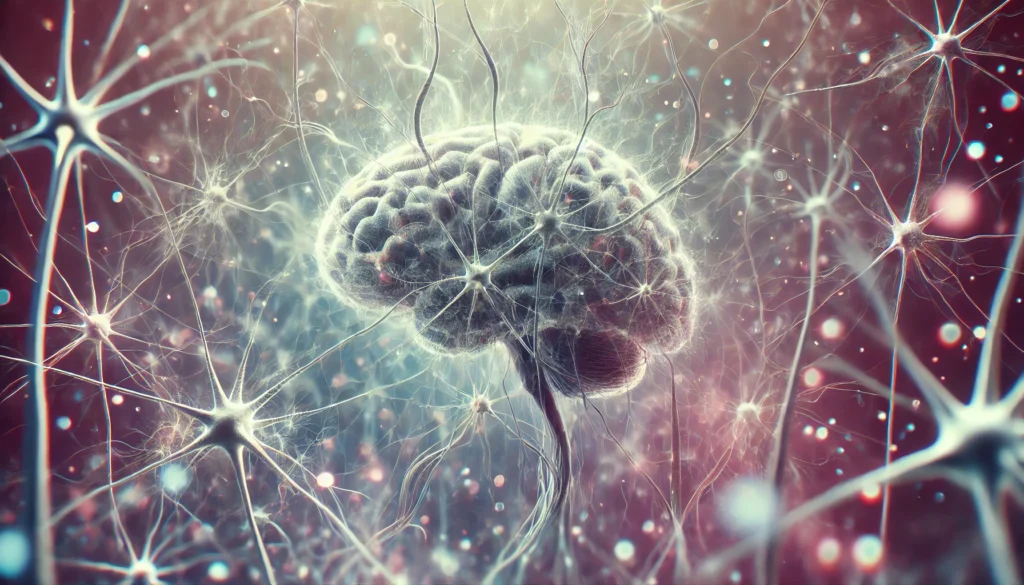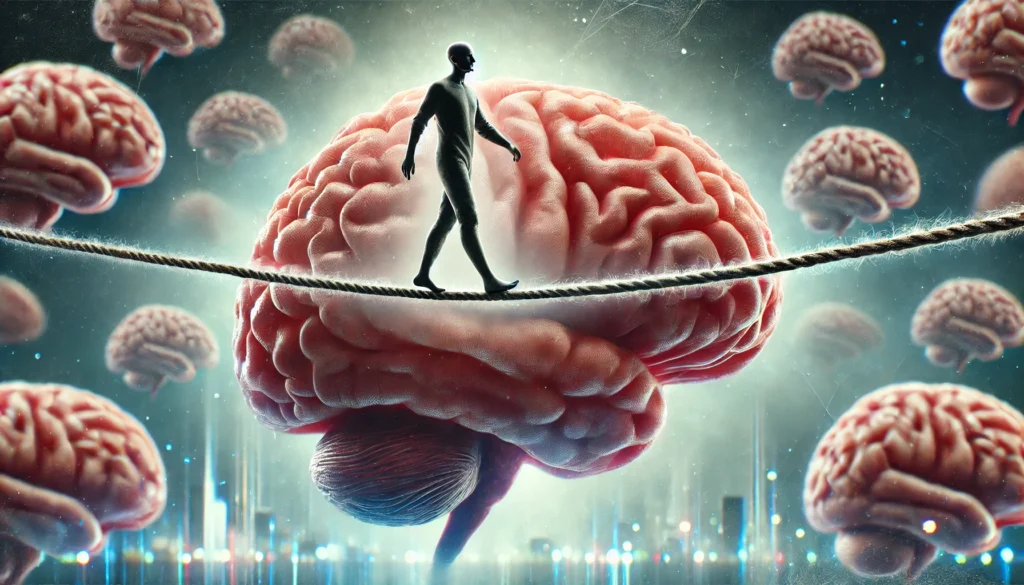When alcohol enters the bloodstream, it travels to the brain, where it can alter the delicate balance of neurotransmitters—chemicals that transmit signals between brain cells. This disruption can lead to short-term effects such as impaired judgment and coordination. However, the long-term consequences can be far more severe, affecting brain health and function.
You may also like: Understanding the Science Behind Lost Memory
Short-term Cognitive Effects
In the short term, alcohol consumption can lead to noticeable changes in behavior and mental clarity. These effects include slurred speech, slower reaction times, and impaired memory. Such impacts are due to alcohol’s depressive action on the central nervous system, which can slow down brain activity.
Impaired judgment is another immediate effect, often resulting in risk-taking behaviors that individuals might otherwise avoid. This can include anything from driving under the influence to engaging in unsafe social activities. The lack of inhibition is a hallmark of alcohol’s short-term cognitive impact.
Coordination issues are also prevalent, as alcohol affects the cerebellum, the part of the brain responsible for balance and movement. This is why tasks requiring fine motor skills become difficult after drinking.
Long-term Cognitive Consequences
Long-term alcohol use can lead to more insidious effects on the brain. One of the primary concerns is its impact on neuroplasticity, the brain’s ability to adapt and form new neural connections. Chronic alcohol consumption can impair this ability, leading to cognitive decline over time.
Memory loss is another serious consequence, with many heavy drinkers experiencing blackouts or memory lapses. Over time, these episodes can progress to more severe memory disorders, impacting an individual’s quality of life.
Chronic alcohol use can also lead to a reduction in brain volume, particularly in the frontal lobes, which are crucial for executive functions like decision-making and problem-solving. This shrinkage can result in significant cognitive deficits, affecting everyday functioning.
Neurotransmitter Imbalance
Alcohol affects several neurotransmitter systems in the brain, including gamma-aminobutyric acid (GABA), glutamate, and dopamine. These neurotransmitters play critical roles in regulating mood, anxiety, and reward pathways.
GABA is an inhibitory neurotransmitter, and alcohol enhances its effects, leading to the sedative and calming effects associated with drinking. However, chronic alcohol consumption can lead to a decrease in GABA receptor sensitivity, resulting in increased anxiety and agitation during withdrawal.
Glutamate, on the other hand, is an excitatory neurotransmitter, and alcohol suppresses its activity. This suppression can lead to withdrawal symptoms like agitation and seizures when alcohol is suddenly removed.
Dopamine, often associated with the brain’s reward system, is also affected by alcohol. While initially, alcohol can increase dopamine levels, chronic use can lead to reduced dopamine function, contributing to feelings of depression and a lack of motivation.
Neurological Damage from Alcohol
Alcohol is a neurotoxin, and chronic consumption can lead to significant neurological damage. This damage results from alcohol’s impact on the brain’s structure and function, which can manifest as cognitive decline, memory loss, and even alcoholic seizures. Long-term abuse can cause permanent damage, contributing to various neurological disorders.
Structural Brain Changes
Research has shown that alcohol can shrink the brain, reducing the size of the gray matter and disrupting the white matter pathways, which are crucial for communication between brain regions. This reduction in brain volume is directly correlated with cognitive decline, affecting memory, attention, and decision-making abilities.
The frontal lobe, responsible for higher cognitive functions and personality, is particularly vulnerable. Damage in this area can lead to changes in behavior, personality, and the ability to plan and organize.
Furthermore, the hippocampus, a region critical for forming new memories, is also affected by alcohol. Damage here can lead to difficulties in learning new information and retaining long-term memories.
Impact on Neurotransmitter Systems
Alcohol’s impact extends to the brain’s chemical messengers, disrupting the balance of neurotransmitters. This disruption affects mood, cognition, and overall brain function.
Chronic alcohol exposure can alter serotonin levels, a neurotransmitter associated with mood regulation. Imbalances in serotonin can lead to increased risk of depression and anxiety disorders in those who abuse alcohol.
Moreover, the long-term effects on dopamine can result in anhedonia, the inability to experience pleasure from activities usually found enjoyable, further exacerbating mental health issues.
Alcoholic Seizures and Neurotoxicity
Alcoholic seizures are a serious consequence of chronic alcohol abuse, often occurring during withdrawal. These seizures result from the brain’s altered chemistry after prolonged alcohol exposure. The sudden cessation of alcohol intake can lead to hyperactivity in the brain, triggering seizures.
Seizures can cause further brain damage, as the intense electrical activity can injure neurons and disrupt normal brain function. Repeated seizures increase the risk of developing epilepsy, a chronic neurological disorder characterized by recurrent seizures.
In addition to seizures, alcohol can cause direct neurotoxic effects, leading to cell death and degeneration of brain tissue. This neurotoxicity is a key factor in the development of alcohol-related brain damage.

The Link Between Alcohol and Brain Damage
Chronic alcohol consumption can lead to a condition known as Wernicke-Korsakoff syndrome, a disorder stemming from a deficiency in thiamine (vitamin B1). This syndrome is characterized by confusion, memory problems, and motor dysfunction. If left untreated, it can progress to Korsakoff’s psychosis, a severe form of dementia.
Wernicke-Korsakoff Syndrome
Wernicke-Korsakoff syndrome is often overlooked in its early stages but can have devastating effects on brain health. Wernicke’s encephalopathy, the initial phase, presents with symptoms like confusion, ataxia, and vision changes. If not promptly treated with thiamine supplements, it can progress to Korsakoff’s psychosis.
Korsakoff’s psychosis is marked by severe memory loss, confabulation (making up stories), and hallucinations. This progression underscores the importance of early diagnosis and intervention to prevent irreversible brain damage.
Oxidative Stress and Inflammation
Furthermore, alcohol can cause oxidative stress in the brain, leading to neuronal damage and death. This oxidative stress, coupled with inflammation, can accelerate brain aging, increasing the risk of Alzheimer’s disease and other forms of dementia.
Oxidative stress results from an imbalance between free radicals and antioxidants in the body. Alcohol increases the production of free radicals while depleting antioxidant defenses, leading to cellular damage.
Chronic inflammation is another consequence of alcohol abuse, contributing to neurodegeneration. This inflammation can exacerbate conditions like Alzheimer’s, as it promotes the buildup of amyloid plaques and tau tangles, hallmark features of the disease.
Genetic and Environmental Factors
Genetic predispositions can influence how alcohol affects brain health, with some individuals more susceptible to alcohol-related brain damage than others. This susceptibility may be due to genetic variations in the enzymes responsible for metabolizing alcohol.
Environmental factors, such as a poor diet and lack of social support, can also exacerbate the effects of alcohol on the brain. Malnutrition, particularly a deficiency in essential vitamins and minerals, can compound the neurological damage caused by alcohol.
Understanding these genetic and environmental influences can help tailor prevention and treatment strategies for individuals at risk of alcohol-related brain damage.
Recognizing the Signs of Neurological Damage
Identifying the signs of neurological damage from alcohol is crucial for early intervention and prevention of further harm. Some common indicators include:
Cognitive Impairment
Difficulty with memory, attention, and problem-solving can be subtle at first but often worsen with continued alcohol use. Individuals may find it hard to concentrate on tasks, remember appointments, or make decisions, impacting daily life and work performance.
Early recognition of these cognitive deficits is essential for seeking help and reducing alcohol intake. Cognitive assessments by healthcare professionals can help identify the extent of impairment.
Interventions such as cognitive rehabilitation and therapy can support individuals in managing these challenges and improving their quality of life.
Motor Skill Deficits
Problems with coordination and balance, often resulting in frequent falls or accidents, are common indicators of neurological damage. These deficits can make everyday activities challenging and increase the risk of injury.
Physical therapy and occupational therapy can assist in improving motor skills and adapting to physical limitations. These therapies focus on enhancing strength, balance, and coordination, helping individuals regain independence.
Regular monitoring and support from healthcare providers are crucial in managing motor deficits and preventing further deterioration.
Mood Changes
Increased irritability, anxiety, or depression can indicate underlying neurological damage. These mood changes may be exacerbated by alcohol’s effects on neurotransmitter systems and can significantly affect relationships and overall well-being.
Psychological support, including counseling and medication, can help address these mood disturbances. Therapy can provide coping strategies and emotional support, while medications may be prescribed to manage anxiety or depression.
Addressing mood changes early can improve mental health outcomes and encourage individuals to seek further help for alcohol-related issues.

Seizures and Alcoholic Ticks
Alcoholic seizures can occur during withdrawal or as a result of chronic damage. These seizures are a medical emergency and require immediate attention to prevent further complications.
Involuntary muscle movements or twitches, known as alcoholic ticks, can also signify neurological disturbance. These movements may affect the face, limbs, or trunk, and can be distressing for those affected.
Medical evaluation and treatment are essential for managing seizures and ticks, with medications and lifestyle changes often recommended to reduce their frequency and severity.
Seeking Medical Advice
If you or someone you know is experiencing these symptoms, it’s essential to seek medical advice and consider reducing alcohol intake. Healthcare providers can offer support, treatment options, and resources for managing alcohol-related brain damage.
Early intervention can prevent further neurological damage and improve long-term outcomes. Support groups and community resources can also provide valuable assistance and encouragement for those seeking to reduce or abstain from alcohol.
Alcoholic Seizures and Brain Damage
Alcoholic seizures are a serious consequence of chronic alcohol abuse, often occurring during withdrawal. These seizures result from the brain’s altered chemistry after prolonged alcohol exposure. The sudden cessation of alcohol intake can lead to hyperactivity in the brain, triggering seizures.
Understanding Alcoholic Seizures
Seizures can cause further brain damage, as the intense electrical activity can injure neurons and disrupt normal brain function. Repeated seizures increase the risk of developing epilepsy, a chronic neurological disorder characterized by recurrent seizures.
The risk of seizures highlights the dangers of abrupt alcohol withdrawal, underscoring the importance of medical supervision during detoxification. Healthcare providers can administer medications to prevent seizures and manage withdrawal symptoms safely.
Education about the risks and signs of seizures can empower individuals to seek help promptly, reducing the likelihood of severe consequences.
The Role of Detoxification
Detoxification is a critical step in addressing alcohol dependence and preventing seizures. A medically supervised detox program ensures that individuals withdraw from alcohol safely, minimizing the risk of seizures and other complications.
Medications such as benzodiazepines are often used to manage withdrawal symptoms and prevent seizures. These medications must be administered under medical supervision to ensure safety and efficacy.
Support from healthcare professionals during detoxification can provide reassurance and guidance, making the process more manageable and increasing the likelihood of successful recovery.
Long-term Management and Prevention
Preventing further seizures and brain damage requires long-term management strategies. These include continued medical care, counseling, and support groups to address the underlying causes of alcohol dependence.
Lifestyle changes, such as adopting a balanced diet, regular exercise, and stress management techniques, can support recovery and reduce the risk of relapse. Engaging in social and recreational activities can also provide a sense of purpose and fulfillment.
Ongoing support from healthcare providers and peer networks is crucial in maintaining sobriety and preventing future seizures, ensuring a healthier and more stable future.
Mitigating the Effects of Alcohol on Brain Health
While the effects of alcohol on the brain can be severe, there are ways to mitigate these impacts and promote brain health:
Moderate Alcohol Consumption
The first step in protecting brain health is to moderate alcohol consumption. The Centers for Disease Control and Prevention (CDC) defines moderate drinking as up to one drink per day for women and up to two drinks per day for men. Staying within these limits can reduce the risk of alcohol-related brain damage.
Understanding personal limits and adhering to recommended guidelines can prevent the negative effects of alcohol on cognitive function. Social and cultural factors often influence drinking habits, so being mindful of these influences can help in moderating consumption.
For those struggling to moderate their intake, seeking professional help can provide strategies and support to achieve healthier drinking habits.
Nutritional Support
A balanced diet rich in antioxidants, omega-3 fatty acids, and vitamins can support brain health and counteract some of the damage caused by alcohol. Foods such as leafy greens, berries, nuts, and fatty fish are excellent choices for maintaining cognitive function.
Ensuring adequate intake of thiamine and other B vitamins is particularly important for those who drink alcohol, as these nutrients can be depleted with excessive consumption. Supplements may be recommended for individuals at risk of deficiencies.
Working with a nutritionist or dietitian can provide personalized dietary recommendations, helping to optimize brain health and support recovery from alcohol-related damage.
Regular Exercise
Physical activity is beneficial for both physical and mental health. Exercise increases blood flow to the brain, promoting the growth of new neurons and enhancing cognitive function. Aim for at least 150 minutes of moderate-intensity exercise per week to boost brain health.
Incorporating a variety of activities, such as aerobic exercise, strength training, and flexibility exercises, can provide comprehensive benefits for brain and body health. Group activities or classes can also offer social interaction and motivation.
Exercise can serve as a positive coping mechanism for stress and anxiety, reducing the reliance on alcohol as a means of relaxation or escape.
Mental Stimulation
Engaging in mentally stimulating activities such as puzzles, reading, or learning a new skill can help preserve cognitive function and prevent decline. Keeping the brain active and challenged is an effective way to maintain mental sharpness.
Hobbies and interests that involve problem-solving, creativity, or strategic thinking can provide additional cognitive benefits. Social activities, like board games or group discussions, can also offer mental stimulation and social connection.
Continual learning and exploration can foster resilience against cognitive decline, promoting a vibrant and engaged mind throughout life.
Seeking Professional Help
For those struggling with alcohol dependence or experiencing signs of neurological damage, seeking professional help is crucial. Healthcare providers can offer a range of treatments, from medication to therapy, tailored to individual needs.
Support groups and counseling can provide emotional support and practical advice for managing alcohol-related challenges. Engaging with these resources can empower individuals to make positive changes and improve their brain health.
Early intervention and ongoing support are key to successful recovery and prevention of further brain damage, ensuring a healthier and more fulfilling life.

Conclusion
Alcohol’s effects on cognitive function are profound and multifaceted, impacting everything from neurotransmitter balance to brain structure. While moderate consumption may be safe for some, chronic and excessive drinking poses significant risks to brain health. By understanding these effects and taking proactive steps to protect cognitive function, individuals can make informed choices about their alcohol consumption and prioritize their long-term brain health.
Incorporating healthy lifestyle choices, seeking medical advice when needed, and staying informed about the latest research can empower individuals to safeguard their cognitive well-being in the face of alcohol’s challenges. Awareness and education are powerful tools in promoting a healthier relationship with alcohol and fostering a culture of responsible drinking.
Further Reading:
Neurological Effects of Alcohol: Impact of Alcohol on the Brain
Neurologic Complications of Alcoholism
Important Note: The information contained in this article is for general informational purposes only, and should not be construed as health or medical advice, nor is it intended to diagnose, prevent, treat, or cure any disease or health condition. Before embarking on any diet, fitness regimen, or program of nutritional supplementation, it is advisable to consult your healthcare professional in order to determine its safety and probable efficacy in terms of your individual state of health.
Regarding Nutritional Supplements Or Other Non-Prescription Health Products: If any nutritional supplements or other non-prescription health products are mentioned in the foregoing article, any claims or statements made about them have not been evaluated by the U.S. Food and Drug Administration, and such nutritional supplements or other health products are not intended to diagnose, treat, cure, or prevent any disease.


